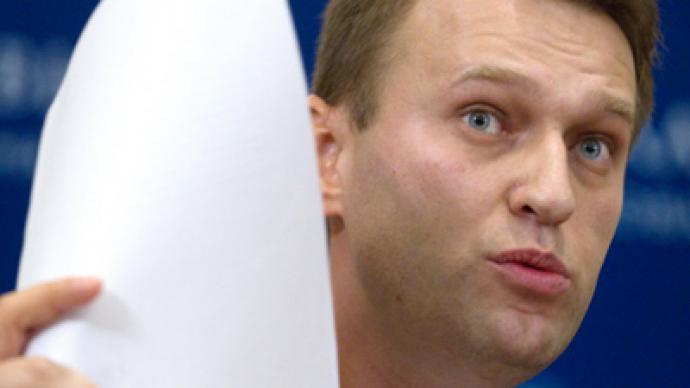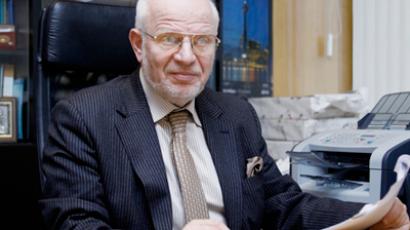Navalny smear campaign - a smear campaign

Russia’s parliamentary majority party, United Russia, has dismissed as provocation a report that it hired PR specialists and bloggers to discredit popular anti-corruption campaigner Aleksei Navalny.
The report about United Russia’s alleged activities appeared in the Monday edition of the Novaya Gazeta newspaper. The article quoted a source in a “large Moscow advertising agency” as saying that his company received a contract from a top member of the United Russia party to start a smear campaign against Aleksei Navalny – a popular and high-profile activist who combines fighting corruption, greenmailing Russian corporations and relentless criticism of United Russia and its members. The newspaper said that the agency’s budget for the campaign amounted to 10 million roubles (about $300,000) and that the plan that appeared in the course of Friday’s brainstorm included shooting fake videos using a Navalny lookalike and distributing them on the Russian blogosphere. On Monday morning, United Russia sharply refuted all the accusations. “The United Russia party is not conducting any campaign against Aleksei Navalny. Neither has the party any such intention. It is obviously a provocation aimed against the United Russia party ahead of the parliamentary elections,” the RIA Novosti news agency quoted the party’s press service as saying. Navalny himself was also quoted in the Novaya Gazeta article, but he was not direct in his charges. The activist quoted an article by one of United Russia’s officials that said that the struggle against Navalny was very well-sponsored, but neither the article nor Navalny made particular suggestions as to who was behind the campaign. “Russians are much smarter than professional political consultants without conscience think. I have no doubt they can distinguish truth from lies,” Navalny said. It is interesting that the article in Novaya Gazeta was signed by Irek Murtazin, a man who served a prison sentence for deliberately spreading false information about his former employer, the president of the Russian republic of Tatarstan, Mintimer Shaimiyev. Murtazin published a report about Shaimiyev’s death in his blog in September 2008 and many journalists believed it as Murtazin was known in media circles as Shaimiyev’s former press secretary. The rumor was quickly quashed. In December, Shaimiyev sued Murtazin for slander and disclosing personal information and in November 2009, Murtazin was sentenced to 21 months in a penal colony for slander (the court cleared the journalist of charges of disclosing personal information).Murtazin was released from the penal colony 7 months ahead of the end of his term. Aleksei Navalny has gained notoriety, first by acquiring small packages of stocks in Russia’s resource monopolies such as Transneft and Gazprom, and then demanding full access to documents and charging the companies with dishonest deals. As majority shares in the monopolies belong to the Russian state, Navalny accused the companies of corruption and demanded a public investigation.Navalny doubled his efforts in the courts with massive PR campaigns and soon became extremely popular, at least on the Russian internet. He founded a website on which he published details of various state tenders where civil servants sought to purchase items that, in Navalny’s view, were too expensive or otherwise suspicious.He then switched to criticism of the United Russia party which he called “the party of fraudsters and thieves.” The activist denies connections with any political or business structures, saying his activities are funded by people’s donations. At an early stage of his career, Navalny worked for the Yabloko party, but was expelled for nationalist sentiments. He also worked as a consultant for the Kirov Region governor Nikita Belykh, a former leader of the rightist party, SPS.














